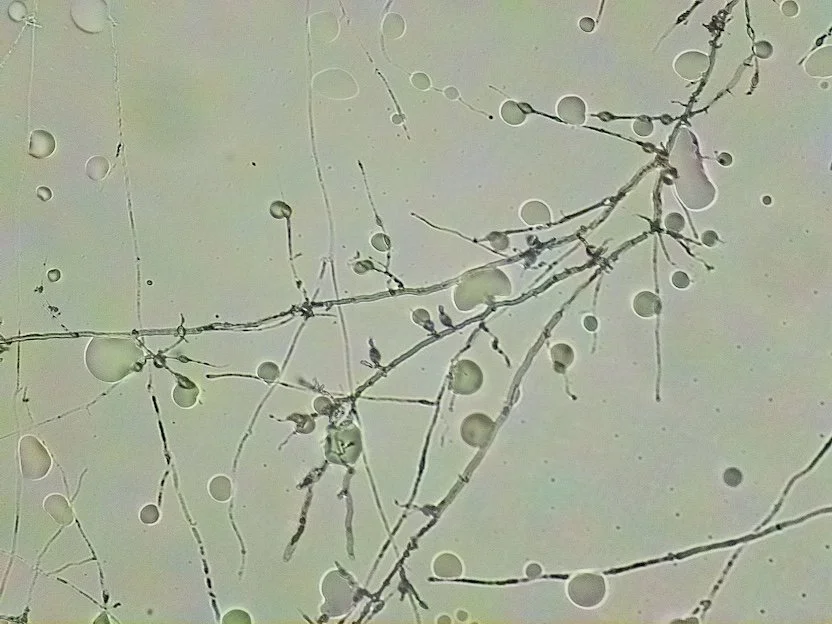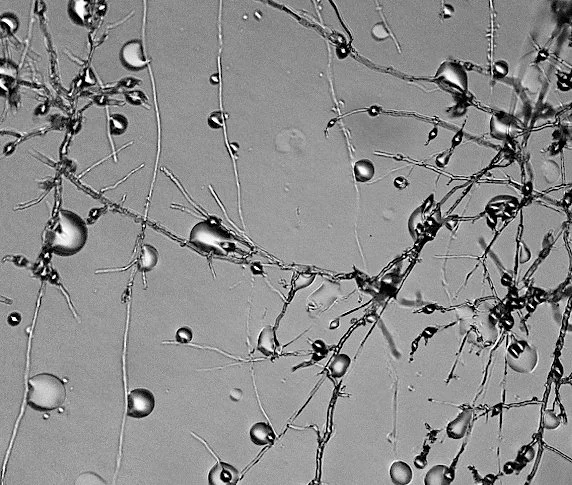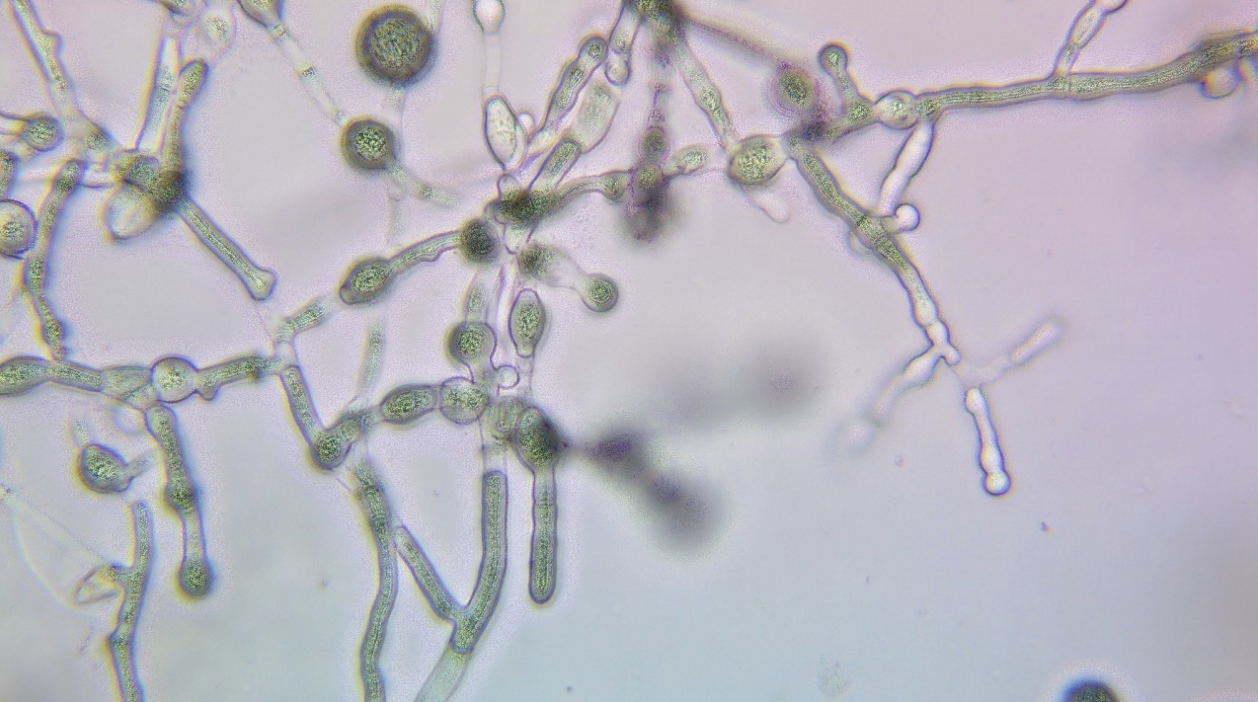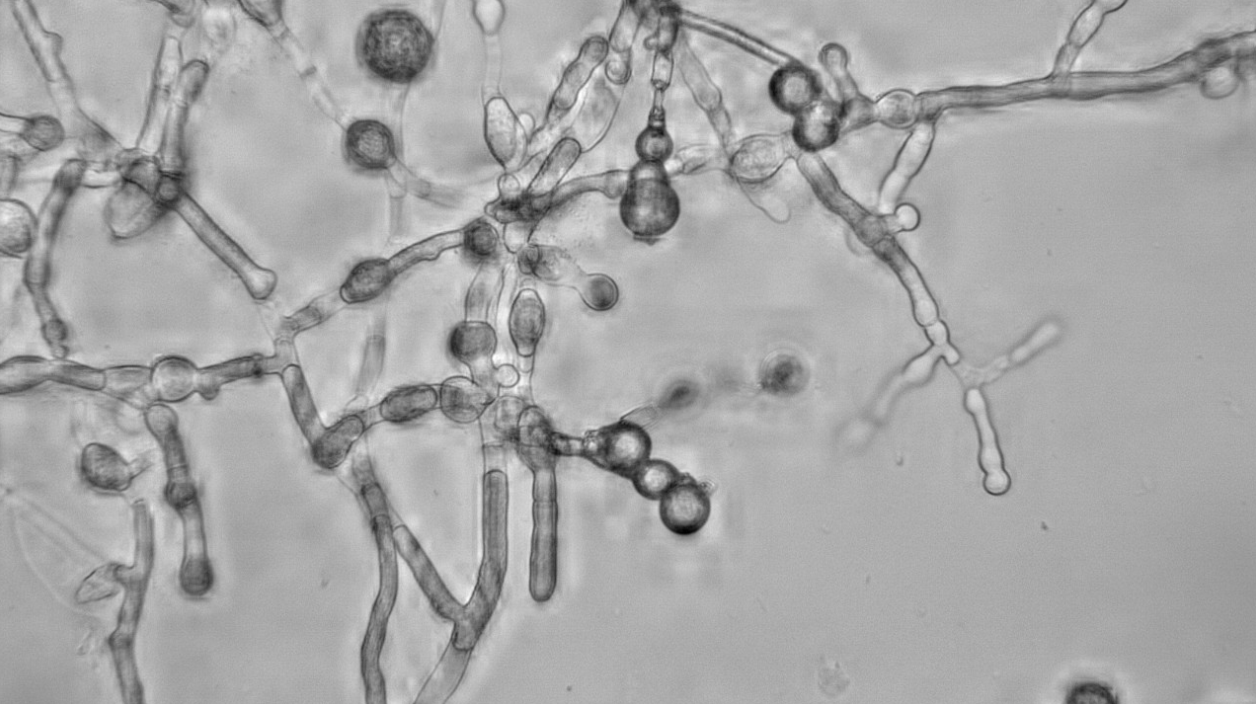
Decision Making in Mycelium R&D (Overfitting as a Behavioral Construct)
In research and development, fit describes more than the alignment between data and model, it describes how we, as decision-makers, respond to uncertainty. Overfitted decision-making feels fast because it rewards motion; underfitted decision-making feels safe because it rewards control. Both are illusions that substitute emotion for understanding.
In mycelium R&D, where systems are alive, historical, and unpredictable, the challenge is not to eliminate noise but to learn how to learn through it.

Mycelium as a Function of Nested Volumes
Scaling mycelium is often framed as an engineering problem: make something small, larger. But in practice, each increase in scale multiplies complexity and reveals new forms of variability. This article explores how these layers of complexity (spatial, parametric, and operational) interact, and how fungal behavior reflects the physical and design constraints around it. By studying how mycelium distributes itself through space, and questioning what ‘space’ is, we can begin to see scaling as a continuing dialogue between fungal adaptability and the systems we build to contain it.

Mycelium as Steady Eddie and the Hopeful Monster
Not all surprises in fungal cultivation are signs of failure. Some are the system answering rationally to the conditions we have given it. In this piece, I explore the concept of the global phenotype, which refers to the full range of phenotypic outcomes a fungal strain can express. I introduce two coexisting principles that shape how we work with it: the dependable Steady Eddie and the rare but revealing Hopeful Monster. Together, they define both the stability that enables scale and the plasticity that opens the door to discovery.

The Multidisciplinarian in Mycelium R&D (and the Responsibility to Do Interesting Things)
In a field defined by biological complexity and systemic variability, success in mycelium R&D is anything but guaranteed. This article argues that multidisciplinarity isn’t a perk, it’s a responsibility. Drawing from personal experience and broader critiques of hyperspecialization, it outlines why practitioners must cultivate competence across mycological, experimental, and design domains. Not to stand out, but to have any real shot at doing something that works, and doing it responsibly.

Mycelium Is the Message
What if working with fungi isn’t about control, but about learning to operate in their neighborhood? This piece explores how mycelium’s morphology and electrical activity can act as a medium in the McLuhan sense — shaping signals, computation, and meaning. From reservoir computing chips to the living logic of fungal networks, it considers how value emerges not from mastery, but from proximity and dialogue with complexity.

The 10x Mycelium Engineer
What does it mean to engineer with fungi? This article reframes the myth of the “10x engineer” through the lens of mycelium, an organism that teaches us resilience, memory, and distributed intelligence. Drawing from years of research and practice, it distills ten first principles that guide how we can design not just with fungi, but alongside them. From respecting fungal plasticity to embracing complexity as signal, these principles outline a framework for engineering rooted in dialogue, reciprocity, and long-term relationship.

Mycelium as Structural Memory (And The Dichotomy of Mycelial Toughness)
This article explores the fundamental trade-off fungi make between physical durability and metabolic flexibility, and how that choice shapes the form and function of mycelium materials. Drawing on fungal morphology, environmental sensing, and hyphal plasticity, it reframes material properties not as fixed traits, but as dynamic expressions of ecological and mechanical history. For mycelium engineers, it offers a deeper understanding of “thallic durability” as both a biological strategy and a design principle, inviting us to see fungal structure as a living memory of developmental choices.

Mycelium as a Cat with Different Temporality
This article explores the idea that working with mycelium requires not just technical skill but a shift in mindset, attuned to an organism that operates with behavioral complexity on a fundamentally different timescale. Drawing on analogies to cats, the piece examines fungal behavior as dynamic, opportunistic, and shaped by memory, history, and environmental context. It presents fungi as closer to animals than plants in both biochemistry and behavior, and considers the possibility of a form of distributed fungal consciousness. For the mycelium engineer, this perspective calls for patience, relational thinking, and tools that help make slow, subtle decisions visible across time.

Swiss Army Knives & Finding Meaning in Fungal Physicality
This article draws a powerful analogy between the versatility of a Swiss Army knife and the utility of dimension reduction tools like PCA and autoencoders in mycelium R&D. It explores how these techniques help simplify complex, multi-feature fungal data into structured, interpretable patterns that reveal deeper biological meaning. By treating fungal morphology and responsiveness as a form of language, dimension reduction becomes a means of translation, enabling designers to move from isolated features to coherent behavioral insight. The result is not just more efficient analysis, but a more relational, informed, and resilient approach to working with fungal complexity.

Questioning Assumptions & (Inoculum) Potential
This article shares the story of a breakthrough in mycelium R&D that challenged long-held assumptions about solid-state fermentation and propagation strategy. It details the development of a modular, actively aerated deep-bed bioreactor system capable of producing uniform, high-strength mycelium composites without relying on aseptic control. Central to this success was a rethinking of inoculum potential, a strategy for managing ecological and temporal context rather than just quantity. Through direct hyphal imaging, predictive modeling, and a bi-directional scaling approach, the team created a recursive learning system across scales that turned complexity into a design asset. The result is a compelling case for multidisciplinary thinking, adaptive experimentation, and data-informed intuition in fungal process development.

Forming Relationships with Fungi (And the Brutality of It)
This article offers a deeply personal and unsentimental account of what it means to form long-term working relationships with fungi in mycelium R&D. Drawing from years of experience cultivating the same fungal strains across vastly different contexts, the author challenges the popular tendency to romanticize fungi, instead portraying them as efficient, opportunistic organisms whose behaviors demand respect rather than projection. Through this lens, forming a relationship with a fungus is not about imagining it as benevolent but about knowing it intimately—its rhythms, quirks, and ruthless strategies—in order to design effectively with its full physical and behavioral complexity.

Ego & Ergosterol
This article examines the complexity of using ergosterol as a proxy for fungal biomass, revealing how the physical plasticity of fungi can undermine seemingly straightforward measurements. While ergosterol is a fungus-specific membrane component with clear potential for quantifying living biomass, its concentration is highly variable across environmental conditions, growth modes, and metabolic states. Without careful calibration tailored to each specific system, ergosterol-based biomass estimates can be misleading, especially in heterogeneous or solid-state contexts. The piece uses this challenge as a broader lesson in humility, emphasizing the need for critical attention to context when interpreting biological signals in fungal biotechnology.

Poly-Directional Scaling and a Recursive Mindset in Mycelium R&D
This article introduces the concept of poly-directional scaling as a strategy for navigating the complex, scale-dependent behavior of filamentous fungi in mycelium R&D. Rather than treating scale as a linear progression from bench to pilot to production, it presents a multidimensional framework where scaling up, scaling down, scaling laterally, and integrating digital modeling occur in parallel. The piece outlines how this approach allows recursive learning across physical formats and experimental systems, supports adaptive learning through uncertainty-driven model refinement, and accelerates insight by aligning system design with specific response targets. The result is a development workflow that respects fungal plasticity, embraces high-dimensional input-response relationships, and prioritizes learning over labor.

Growth, Independence & (Mycelium R&D) Opportunity
This article explores a formative inflection point in the author’s transition from visual artist to mycelium engineer, highlighting how early-stage intentional practice, paired with a key biological insight, can catalyze meaningful innovation. The insight centers on the independence between specific growth rate and growth velocity in filamentous fungi, a distinction that reveals a deeper opportunity within fungal physical plasticity. By unpacking how fungi can modulate biomass accumulation and spatial expansion separately, the piece argues that this decoupling is not only fundamental to fungal biology but essential for unlocking tunability in mycelium-based design. This understanding marked a critical shift in the author’s practice, reframing fungal growth as a navigable design space rather than a fixed behavior.

Embracing Fungal Complexity in Mycelium R&D
This article presents three core principles for working effectively with filamentous fungi in mycelium product and process development. It emphasizes the importance of fungal physical plasticity as both an opportunity and a challenge, and advocates for tools like featurization, dimension reduction, and adaptive design to navigate complex input-response systems. More than a technical guide, it encourages a rigorous and respectful approach to fungal R&D.